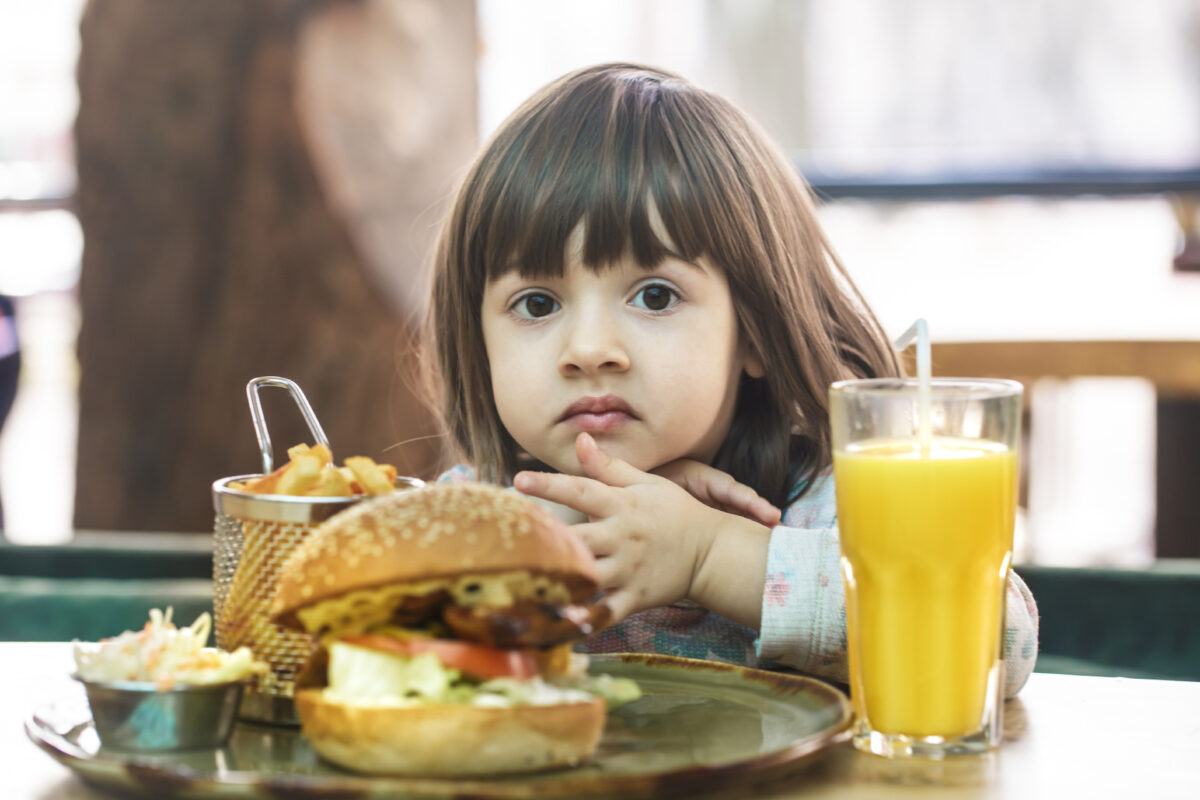Are younger children at risk of developing obesity?

Are younger children more likely to develop obesity or, on the contrary, is their dynamic development, willingness to run and explore the world its prevention?
The answer is not simple — it depends. What do we know for sure? Obesity is a chronic, systemic metabolic disease characterised by increased body fat. Excess body fat consequently leads to the appearance of dysfunctions of many organs in the long run.
The neonatal and infancy periods are indeed characterised by the highest dynamics of weight gain. Body weight should double and triple in six and twelfth months of life, respectively, relative to body weight at birth.
A child during this period is often referred to as: “a specimen of health”, “ruddy”, and “healthy-looking”. This is often the moment when the guardians and grandparents want to “keep this moment” for longer. Bearing in mind that the period of the sixth month of life brings a change in the way of feeding – there is a stage of expanding the child’s diet, it can be seen that this is the time of increased risk of mistakes that may contribute to excessive weight gain.
Nutritional mistakes made during this period can lead to excessive weight gain and are related to improper metabolic programming, despite the fact that most children of obese infants will lose excess body fat around the age of two, i.e. during this period when their physical activity increases, in the following years there may be a re-increase in body fat (we call rebound obesity). It is worth remembering that in early childhood and until the onset of adolescence, the physiological weight gain will be about 2–2.5 kg per year, where the differences between the sexes will be insignificant.
The most common mistakes made during childhood related to the undermined risk of being overweight are related to:
- offering excessively shredded foods for too long;
- a too high proportion of highly processed products in the child’s diet, including the so-called children’s meals (sweetened yoghurts, sweetened flavoured milks, ready-made porridges with added sugar and sweeteners, sweets).
- too high proportion of juices and mousses treated by caregivers as a way to include portions of vegetables and fruits;
- offering flavoured waters containing sugar to children;
- excessive use of ready-made foods, including fast food chains;
- rewarding with sweets;
- succumbing to advertisements and media influencing the decision to choose products for children without analysing the ingredients contained in the product;
- lack of a common food policy in the family.
- lack of family forms of physical activity with children.
In terms of prophylaxis during childhood, it is worth promoting such behaviours as:
- responsive feeding, responding to the baby’s readiness to try to eat a new meal (other than milk);
- giving only water as a way to hydrate the child;
- adjusting the size of meal portions — according to recommendations (www.1000dni.pl);
- taking care of the gradual, regular inclusion of various vegetables, cereal products, and natural dairy products in the child’s meals;
- proper planning of supplementary meals after picking up the child from the nursery or kindergarten;
- celebrating meals together, and preparing meals together, which will teach children good choices and a good relationship with food.
Let’s meet!
We invite all of you to an individual meeting with the headteacher. This will be a great opportunity to find out about our educational offer, ask questions, and visit the kindergarten. You can book one visit for a given day.












